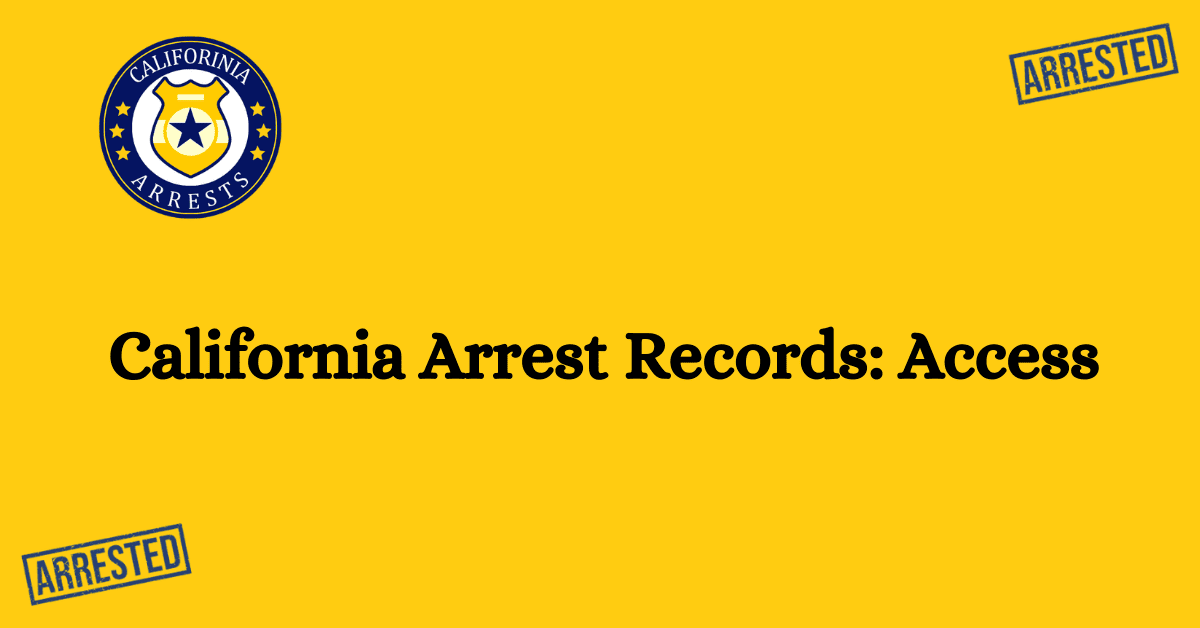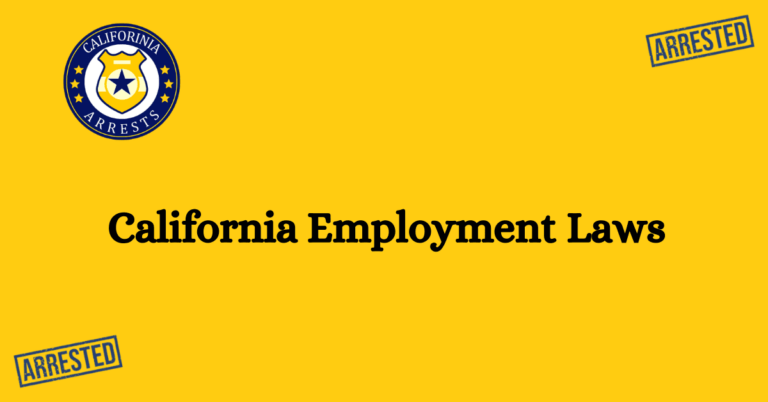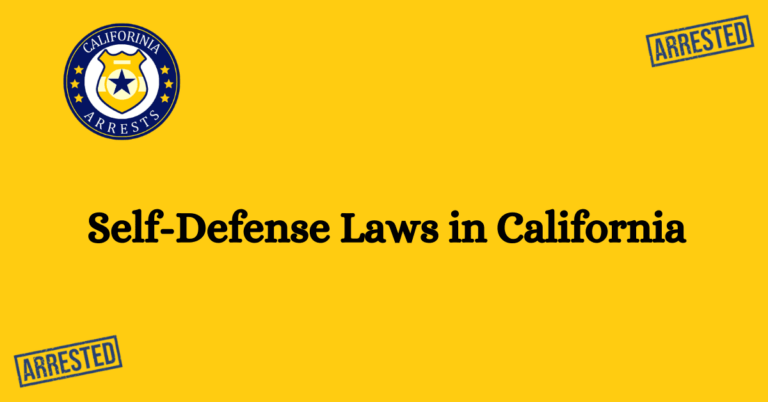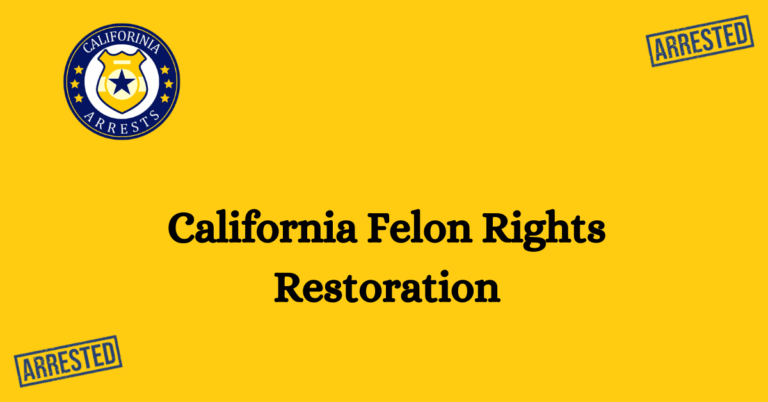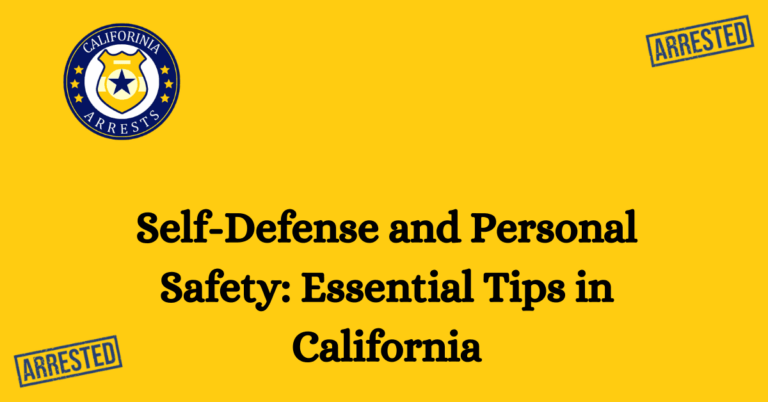California Arrest Records Access
Discover the key to unlocking the truth with California Arrest Records: Access. In this comprehensive guide, we delve into the world of arrest records, providing you with essential information on how to access and utilize this valuable resource. Whether you’re a concerned citizen, a journalist, or a legal professional, our aim is to equip you with the tools and knowledge necessary to navigate the complexities of California’s arrest records system.
With California Arrest Records Access, you’ll gain insight into the process of obtaining arrest records, including the various channels and databases available to the public. We’ll explore the significance of arrest records in criminal investigations and how they can be used to uncover crucial details, such as charges, convictions, and sentencing. Additionally, we’ll discuss the legal framework surrounding access to these records and the importance of privacy safeguards.
Understanding the Different Types of Arrest Records
When it comes to arrest records, it’s important to understand that there are different types available. In this section, we’ll explore the various categories of arrest records and their significance in criminal investigations.
Criminal Arrest Records
Criminal arrest records are perhaps the most commonly sought-after type of arrest records. These records document arrests made in connection with criminal activities, ranging from minor offenses to serious crimes. They provide crucial details such as the charges brought against the individual, the date and location of the arrest, and any subsequent court appearances.
Juvenile Arrest Records
In the case of individuals who were arrested as juveniles, their arrest records are classified separately. Juvenile arrest records are typically sealed or expunged once the individual reaches a certain age, with the intention of giving them a fresh start in adulthood. However, in certain circumstances, these records may still be accessible for specific purposes, such as employment background checks.
Non-Criminal Arrest Records
Non-criminal arrest records encompass arrests made for non-criminal offenses, such as traffic violations or civil infractions. While these records may not carry the same weight as criminal arrest records, they can still be important in certain situations, such as determining a person’s driving history or assessing their overall behavior.
Accessing Arrest Records: Methods and Resources
Now that we’ve covered the different types of arrest records, let’s delve into the various methods and resources available to access these records in California. It’s important to note that while some records may be easily accessible to the public, others may require specific permissions or qualifications.
Online Databases
One of the most convenient ways to access arrest records is through online databases. These databases compile information from multiple sources and provide a user-friendly interface for searching and retrieving records. Some databases may require a subscription or a small fee, while others may offer limited access for free.
Law Enforcement Agencies
Another avenue for accessing arrest records is through direct contact with law enforcement agencies. Police departments, sheriff’s offices, and other law enforcement entities may have dedicated divisions or departments responsible for processing record requests. It’s important to follow the specific procedures outlined by each agency and be prepared to provide relevant identification and documentation.
Court Records
Court records can also be a valuable resource for accessing arrest records. These records are typically maintained by the courts in which the criminal case was heard. The process of obtaining court records may vary depending on the jurisdiction and the specific court involved. Generally, individuals can request records either in person or through written requests, following the court’s guidelines.
The Importance of Arrest Records in Criminal Investigations
Arrest records play a crucial role in criminal investigations, providing law enforcement agencies, legal professionals, and concerned citizens with valuable information. By understanding the significance of these records, individuals can better appreciate their role in ensuring justice and maintaining public safety.
Uncovering Criminal Histories
Arrest records serve as a window into a person’s criminal history, allowing investigators to piece together a comprehensive picture of their past activities. By examining arrest records, law enforcement can identify patterns, connect individuals to multiple crimes, and establish a timeline of criminal behavior.
Establishing Credibility and Verifying Identities
Arrest records also play a crucial role in verifying a person’s identity and establishing their credibility. They provide concrete evidence of a person’s involvement in criminal activities, making it easier to assess their trustworthiness and reliability as witnesses or sources of information.
Supporting Legal Proceedings
Arrest records serve as vital evidence in legal proceedings, helping prosecutors build cases against individuals accused of crimes. They can provide crucial details about the circumstances surrounding an arrest, the charges brought against the accused, and any subsequent court appearances or convictions.
Privacy Safeguards and Access Regulations
While access to arrest records is crucial for the transparency of the justice system, it is also important to ensure privacy safeguards are in place. In this section, we’ll explore the legal framework surrounding access to arrest records and the measures taken to protect individuals’ privacy rights.
Public Records Laws
Public records laws govern the accessibility of arrest records and other public documents. These laws vary by jurisdiction, but they generally aim to strike a balance between the public’s right to information and an individual’s right to privacy. It’s important to familiarize yourself with the specific laws in California and understand the limitations and exemptions that may apply.
Sealing and Expungement
In certain cases, individuals may be eligible to have their arrest records sealed or expunged. Sealing records means they are no longer accessible to the public, while expungement involves physically destroying the records. These measures are typically reserved for individuals who have completed their sentences or met other specified criteria.
Redaction and Confidentiality
Law enforcement agencies and record custodians are responsible for redacting sensitive information from arrest records to protect individuals’ privacy. This may include personal identifiers, such as social security numbers or addresses, as well as information that could jeopardize ongoing investigations or endanger individuals’ safety.
By understanding the legal framework and the importance of privacy safeguards, individuals can navigate the complexities of accessing arrest records responsibly.
FAQs
What are California Arrest Records?
California Arrest Records are official documents that contain information about individuals who have been arrested in the state of California. These records typically include details such as the person’s name, date of arrest, charges filed against them, and any other relevant information related to the arrest.
How can I access California Arrest Records?
To access California Arrest Records, you can visit the official website of the California Department of Justice. They provide an online portal where you can search for and request access to these records. Alternatively, you can also visit your local law enforcement agency or courthouse to inquire about accessing these records.
Are California Arrest Records public information?
Yes, California Arrest Records are considered public information. This means that they can be accessed and viewed by members of the public, unless they have been sealed or expunged by a court order.
What can I use California Arrest Records for?
California Arrest Records can be used for various purposes, including background checks, employment screenings, and legal proceedings. They provide valuable information about an individual’s criminal history and can help make informed decisions or assessments.
Are California Arrest Records always accurate?
While California Arrest Records strive to be accurate and up-to-date, there may be instances where errors or discrepancies occur. It is important to cross-reference information and verify it with other sources whenever possible to ensure accuracy.
Can I request the removal of my arrest record from public access?
In certain cases, it may be possible to request the removal of your arrest record from public access. This process is known as expungement or sealing of records and usually requires meeting specific eligibility criteria. It is recommended to consult with a legal professional to understand the process and requirements in your specific situation.

